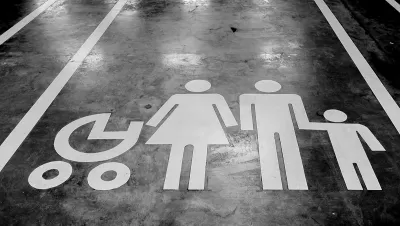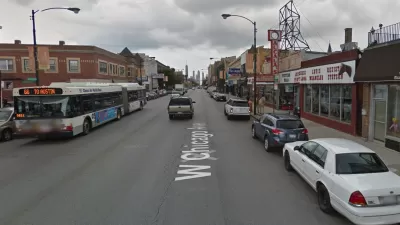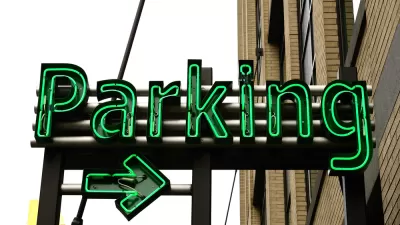Citizens and businesses owners are actively involved in modernizing parking policies and assets in San Diego in a district by district approach, writes San Diego parking guru Bill Keller.

In San Diego, old auto-oriented expectations, like free parking, die harder than in bigger denser cities like San Francisco and Chicago, writes downtown retailer-turned-parking-activist Bill Keller.
In San Diego, despite the growing population and a tightening supply, many locals still expect free parking – especially in beach communities. San Diego currently has about 5,700 metered spaces mostly charging a top rate of $1.25 per hour. Nearly all the metered spaces are in Uptown and Downtown where parking is a hot topic at neighborhood meetings.
Therefore, modernization of public parking management, particularly metered parking, has been slower and more incremental than in those bigger cities. The city has implemented a "community-up" district by district approach, creating Community Parking Districts. "This low-tech, neighborhood-up approach has become the hallmark of parking management in San Diego," writes Keller. It has empowered neighborhood residents and businesses to play a major role in setting parking policy. For example,
Since 2004, the Downtown Parking Management Group*, a volunteer board of residents and business members, has worked with City staff to improve utilization of street parking. An early pilot program targeted sections of East Village, Cortez Hill and the Marina District with very low meter usage . . .
During the pilot, for example, street parking in the Gaslamp Quarter remained at $1.25 per hour with a two-hour limit while several blocks of East Village from Eighth Ave to Park Blvd were converted to $1 per hour with a four-hour limit. East of Thirteenth, rates dropped to $.50 per hour with a nine-hour limit. This offered price sensitive workers and residents an option to walk a little and save.
The experiment worked. Over a two year period, meter utilization was up 106% and (despite the drop in rates) meter revenue was up 89%.
This community-based approach has resulted in a number of other incremental changes and refinements to metered parking which has both increased parking meter revenue and parking supply. More details are in the two part articles on UrbDeZine, with a third installment yet to come.
FULL STORY: Parking Management: San Diego Style (Part Two)

Maui's Vacation Rental Debate Turns Ugly
Verbal attacks, misinformation campaigns and fistfights plague a high-stakes debate to convert thousands of vacation rentals into long-term housing.

Planetizen Federal Action Tracker
A weekly monitor of how Trump’s orders and actions are impacting planners and planning in America.

In Urban Planning, AI Prompting Could be the New Design Thinking
Creativity has long been key to great urban design. What if we see AI as our new creative partner?

King County Supportive Housing Program Offers Hope for Unhoused Residents
The county is taking a ‘Housing First’ approach that prioritizes getting people into housing, then offering wraparound supportive services.

Researchers Use AI to Get Clearer Picture of US Housing
Analysts are using artificial intelligence to supercharge their research by allowing them to comb through data faster. Though these AI tools can be error prone, they save time and housing researchers are optimistic about the future.

Making Shared Micromobility More Inclusive
Cities and shared mobility system operators can do more to include people with disabilities in planning and operations, per a new report.
Urban Design for Planners 1: Software Tools
This six-course series explores essential urban design concepts using open source software and equips planners with the tools they need to participate fully in the urban design process.
Planning for Universal Design
Learn the tools for implementing Universal Design in planning regulations.
planning NEXT
Appalachian Highlands Housing Partners
Mpact (founded as Rail~Volution)
City of Camden Redevelopment Agency
City of Astoria
City of Portland
City of Laramie





























